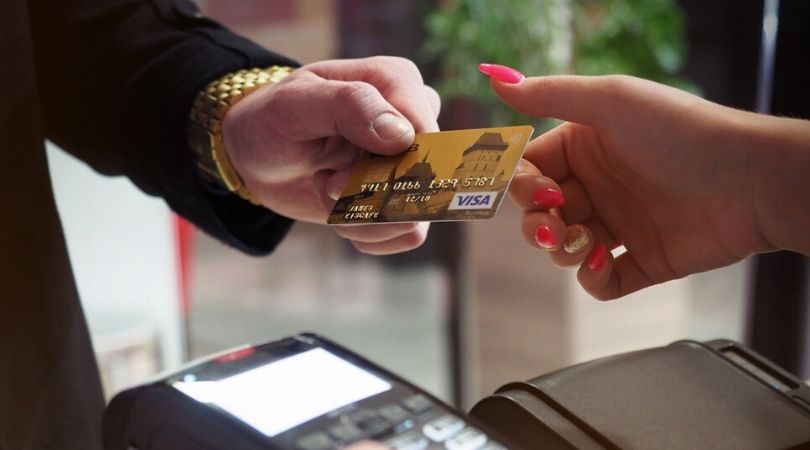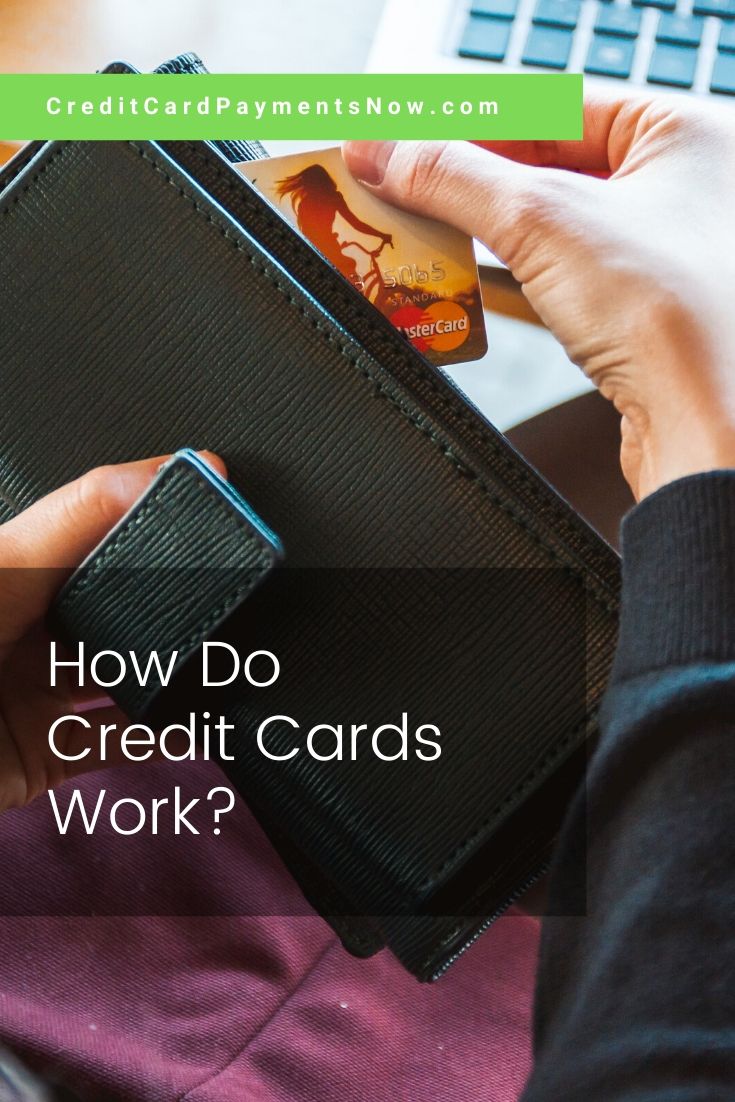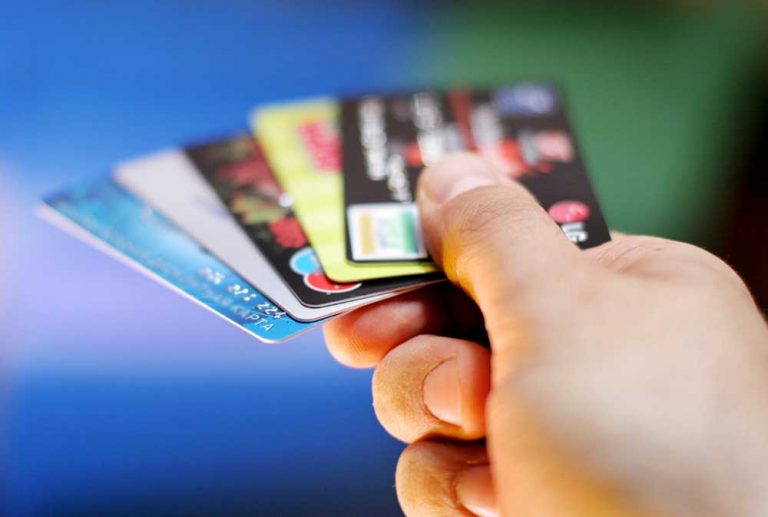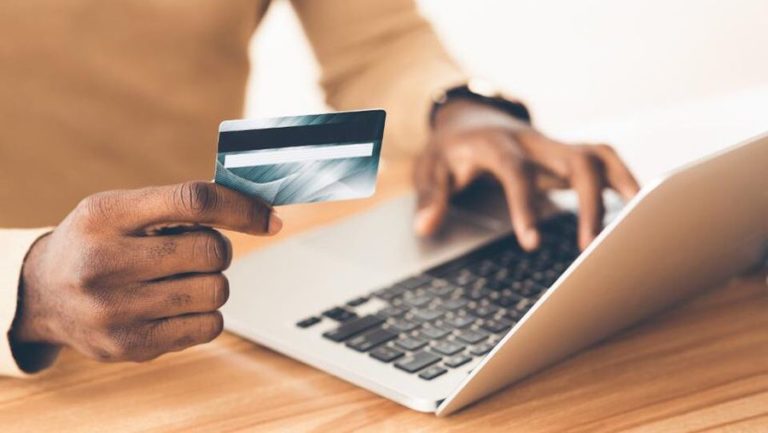Most Americans have at least one credit card, some to buy items they cannot afford right away, others to improve credit score or just benefit from rewards. Many fail to understand how do credit cards work, hence the HUGE credit card debt a lot of them struggle with.
This article is dedicated to how credit cards work, if they are a good financial tool or not and how to choose the right credit card for our needs.
How Do Credit Cards Work?
A credit card is a means to get a loan.
The credit card issuer allows you to spend a certain amount of money every month (credit limit), which you need to repay, ideally when the statement is due, so that you avoid paying interest. If you are using a 0% interest credit card (0% APR), you can stretch that payment as long as the 0% is offered. Don’t pay your card in full and you’ll ‘enjoy’ up to 29% in yearly interest and late fees.
Phew, so why bother get a credit card, if it’s so easy to get into so much trouble?
If you do pay your balance (the amount you borrowed) in full, this allows you to improve credit score and also get access to better loan terms.
So, even if you are debt free (like we are and tend to remain so), by using a credit card you can improve your credit history and get better deals. Even renting is affected by your credit score, when we looked for a house in NYC to rent, we were asked to show our credit report. How crazy is this?
While a debit card takes the money from your checking account (not more than you have there), a credit card allows you to borrow from the bank. Since we know that banks never lose money, when you repay the debt, unless you have a 0 APR, you will be charged interest. Use the credit card to finance your purchases, unlock cashback and rewards, improve credit score.
Since the credit card activity is reported to credit bureaus, unlike debit card use, this modifies you credit rating.
Used right, credit cards are incredibly powerful and allow you more financial flexibility, but, improper use will get you in debt.
Credit Cards Glossary
CREDIT LIMIT
How much money you can borrow during a billing cycle. It’s a credit score ranking factor, so a bigger credit limit affects it positively. At the same time, getting a better credit score, means your bank will most likely increase your credit limit.
Say your credit limit is $2000. This means that ALL purchases you make that month cannot go over this limit.
BALANCE
The money you have spent on your credit card, that you need to reimburse, ideally, within that month, so that you don’t pay interest. This is your current credit card debt.
If you spent $500 this month, this means that, you need to pay $500 by the end of your month.
!IMPORTANT!
Don’t think that, if your bank allows you to borrow 2K bucks, you should do it. By keeping your balance under control and not getting overboard with your expenses, you can improve your credit score. If you use up all your credit limit, your credit score will decline. So aim to use not more than 30-40% of your credit limit.
AVAILABLE CREDIT
We delve deeper into how credit cards work and discuss the AVAILABLE CREDIT term.
With reference to our example, you have a $2000 credit limit and already spent $500, this leaves you with $1500 available credit.
You cannot spend more than this, so try to stay within the limits. As mentioned before, using up your entire credit limit will decrease your credit score.
BILLING CYCLE
Time after you make purchases, until your credit card bill is issued. In my case the billing cycle starts on the 1st in every month, my husband’s starts in the 14th. It differs from account to account, but we’re talking a month’s time while you purchase and pay for the stuff.
STATEMENT DUE DATE
A date on your credit card statement (credit card bill) by which you need to pay the loan, or at least the minimum. In my case it’s the 1st of the month, for my husband it’s the 14th. Don’t miss this date or you’ll be charged late fees, which are up to $39 for most credit card plans.
If you don’t want to get in trouble, set up automatic payments from your checking account to your credit card and make sure you have enough money to cover the bill (or the minimum payment).
I’m so scared of missing payments that I actually make multiple payments during a month, just to make sure.
MINIMUM PAYMENT
The amount of your credit card bill you need to pay each month to keep your account in good standing. Or, if you ask me, the perfect way to get into trouble.
AVOID MINIMUM PAYMENTS like the plague, unless you want to be in credit card debt forever.
Here is how it works:
We’ll stick to our example with the $2,000 credit limit.
You use up this credit, so you should pay $2000 back at the end of the billing cycle. But you decide to make the minimum payments only. Say your APR (Annual Percentage Rate) is 27% (I think my credit card has this huge APR), this means that, if you don’t pay in full, you will pay 27% every year on top of your debt itself.
The minimum payment is 4%, so you should pay at least $80 bucks every month to cover this minimum payment.
But how long does it take to pay off this debt?
131 MONTHS. Which is almost 11 years!
How much money will you pay back? 4,271.64.
You started with $2,000 and got to more than double.
So, if you’d like to get ONE SINGLE credit card use advice from me: NEVER stick to the minimum payment, try to pay off as much as you can every month.
ANNUAL PERCENTAGE RATE (APR)
The ‘interest’ your credit card issuer gets from you, unless you pay your credit card in full. As you know, APRs for credit cards are HUGE, so try to stay away from trouble.
Credit Card Fees
Here is a list of the credit card fees you need to have in mind:
- Late fees: if you don’t make at least the minimum payment on due date, you’ll be charged a late fee. It’s usually up to $39.
- Annual fees: believe it or not, some credit cards actually cost you money to have. These fees can go up to 500-600 dollars.
- Cash advance fees: your credit card is not your regular checking account, so you cannot get cash when you need it. If you do want cash, you’ll pay a hefty fee.
- Balance transfer fees: if you transfer your balance (the amount you owe to that credit company) to another card, you will pay a fee.
- Foreign transaction fees: if you pay in another currency, you could be charged a fee. Not all credit cards have this fee, though, so do look at the terms and conditions to know exactly what’s charged and what isn’t.
How to Make Credit Cards Work for You
Credit cards can be an incredibly powerful tool, as you can finance payments at zero APR (for a limited time, but still), you can get incredible rewards and deals, or you can repair your credit score in a matter of months.
Here is how to use them safely to achieve your financial goals and not get into credit card debt:
- NEVER PAY ONLY THE MINIMUM – try to pay off as much as possible from your balance, so that you don’t have to pay your debt ten years from now.
- DON’T USE UP YOUR ENTIRE CREDIT LIMIT – if you don’t want your credit score to take a dive, try to keep your spending to a decent percentage.
- SET UP AUTOMATIC PAYMENTS – if you are forgetful like me, set up automatic payments. And leave enough money in the checking account to cover your bills.
- BE RESPONSIBLE WITH YOUR CREDIT CARD – don’t squander money, don’t be irresponsible. Credit cards have some of the biggest APRs, you’ll get into so much trouble, it will take years to come out of it.
So, if you wanted to know how do credit cards work, I hope this small tutorial helped you understand better.





